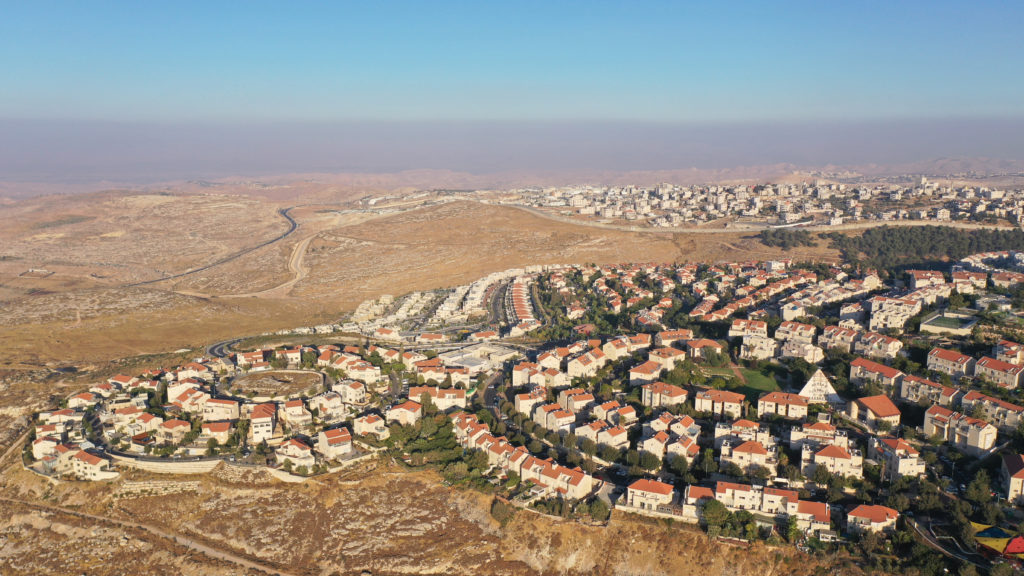IN THE MEDIA
Penny Wong must understand that many Palestinians see all Israelis as ‘settlers’
January 17, 2024 | Ran Porat

The Australian – 17 January 2024
Before her visit to Israel this week, Foreign Minister Penny Wong reiterated the government’s view that Israeli “settlements are illegal under international law”, focusing on the issue of West Bank settlements once again. Israel disagrees with this interpretation, arguing the West Bank is “disputed territory” and rejecting their definition as “occupied Palestinian territory”, as Australia’s current government argues.
The settlement issue has been an influential element of the Arab-Israel conflict for decades. Settlements often have been portrayed as central to it in popular narratives, including with respect to the war in Gaza.
The roots of the development of settlements lay in Israel’s decisive victory in the 1967 Six-Day War, when the Jewish state took control of 1.3 million Palestinians in the Jordanian-occupied West Bank, as well as the Egyptian-occupied Gaza Strip.
Following the war, Israel signalled a willingness to trade newly captured lands for peace. When that was rejected by the Arab states, a particular group within Israel saw this as an opportunity to continue implementing the founding idea of Zionism – redemption of Jewish peoplehood by settling the biblical Land of Israel. By the mid-1970s, the national-religious Gush Emunim (Block of the Faithful) movement became the ideological framework and political force behind building new settlements inside the West Bank (later also in Gaza).
Israel’s fractured politics, which often gives great power to small minorities, offered them considerable influence.
Palestinians view settlements as exemplifying Israeli expansionism and occupation of their land. Ironically often built by Palestinian workers, modern settlement houses also contrast sharply with the crowded Palestinian refugee camps and their rickety temporary-turned-permanent homes.
At the same time, Israel never annexed the West Bank (apart from the eastern section of Jerusalem), leading to a multi-legal system anomaly: Israeli law for Israelis, while the Palestinians are under military law (extending Israeli law to them would be tantamount to annexing the area).
Later, following the 1993 Oslo Accords, the Palestinian Authority was created and PA law now applies to the overwhelming majority of West Bank Palestinians who live under its governance.
Today, more than 500,000 Israelis live in 144 settlements in the West Bank (all 8000 settlers in Gaza were evacuated in 2005). Scattered settlements pepper the West Bank map in a manner detractors say significantly challenges the idea of a two-state resolution to the conflict, destroying any possible geographical contiguity of a future Palestinian state. Israel’s supporters counter that the settlements occupy almost the same area geographically as they did in 2008 – about 2 per cent of the West Bank – when then Israeli prime minister Ehud Olmert offered the Palestinians a state on land equivalent to the entirety of the West Bank and Gaza.
Israelis argue that unrelenting Palestinian rejectionism, epitomised by the refusal of this offer, and not settlements, remains the true obstacle to peace.
Nevertheless, any final peace plan will need to deal with the settlements, determining which are incorporated within Israel as part of land swaps and which (if any) become incorporated into a Palestinian state (which would bring a whole set of security challenges).
Realistically, only a small number of settlements are expected to be dismantled (if any at all), given the political, economic and emotional obstacles to any such move. Israeli settlements are connected by a network of roads, some sections of which West Bank Palestinians are banned from using after constant terror attacks on Israelis driving there. Israeli army bases and checkpoints in the area protect the settlers and thwart terrorist attacks. The daily friction of the army with the Palestinian population is exacerbated by a small minority of ideological extremist settlers who sometimes violently attack Palestinians or initiate violent confrontations.
Meanwhile, Palestinian terrorist violence is on a much larger scale and has been rising within the West Bank. This trend is actively encouraged by the PA under its weak, long-serving, 88-year-old President, Mahmoud Abbas. The PA pays hefty salaries to Palestinian attackers of Israelis if they are imprisoned or to the families of those killed.
Meanwhile, terrorist organisations such as Hamas and Palestinian Islamic Jihad, armed and funded by Iran, make use of the PA’s lack of governance in some areas to plan and launch attacks against Israel. A staggering 1300 such Palestinian terror attacks were committed in the West Bank and Jerusalem since October.
Worse still, many Palestinian groups (including Hamas) insist all Israeli communities are settlements, even those not in the West Bank. The Jewish state, they argue, was built on “stolen Muslim Palestinian land” and all Israelis are foreign “settlers” who should be killed or expelled. Under Hamas’s rule, Gazan children are taught from a tender age to hate Jews and kill “settlers”.
This is the main background to October 7, 2023, and the thousands of Hamas terrorists and other Gazans who stormed Israeli towns and committed a long list of chilling crimes against humanity – murdering whole families, torturing, raping, and kidnapping Israeli civilians.
They believed they were committing these atrocities against “settlers”, not human beings.
Wong says she will meet with “representatives of (Palestinian) communities affected by settler violence” and “reaffirm our view that settlements are illegal under international law”. She should keep in mind the Palestinian rejection of peace initiatives and the destruction and death created by the dehumanisation by Hamas of all Israelis as “settlers”.





